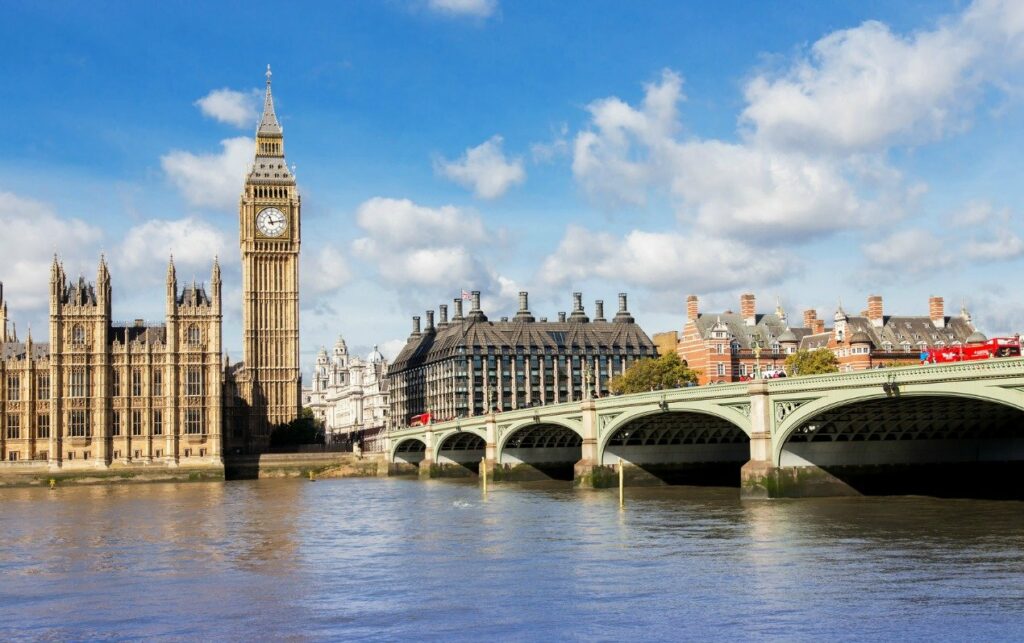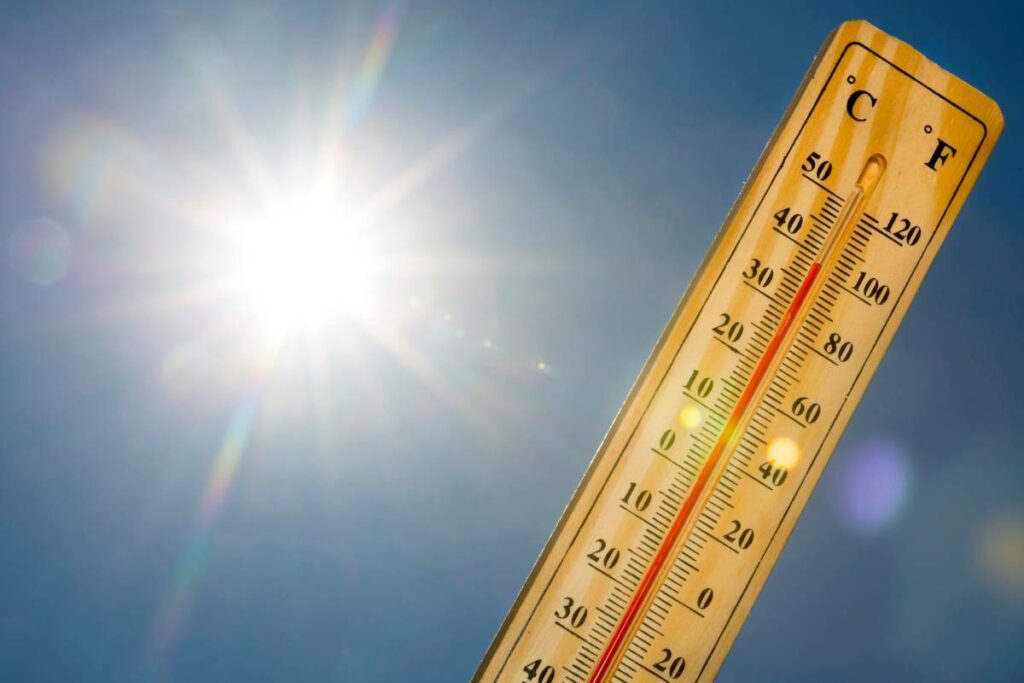In case you missed it, September was the end of the world or very nearly. “September sizzled to records and was so much warmer than average that scientists call it ‘mind-blowing’” according to the Globe & Mail, the Daily Telegraph shrilled “‘Gobsmackingly bananas’: Scientists shocked by September’s record-breaking heat/ Record-high September temperatures are ‘beyond belief’, say scientists” and NBC howled via email that “The weather in September was so ‘gobsmackingly bananas’ that even scientists are spooked”. Which might lead the unwary to think NBC and other mainstream outlets have not been telling us “scientists” were in a panic over climate for at least 20 years now. But this time for sure.
How bad is it? Well, terrible as always. And everybody was on it. The actual NBC news story starts: “There are hot summers. And then there’s the summer of 2023.” Indeed:
“For huge portions of the United States, the past few months have been brutally hot — often for weeks on end. Heat records were set across the country, and much of the southern tier spent this summer in the grips of a particularly unrelenting stretch of heat and humidity.”
Like unprecedented man. Reuters “Sustainable Switch” declares that:
“The global temperature for January-September is also 1.4C higher than the pre-industrial average (from the years 1850 to 1900), the institute added, as climate change pushes global temperatures to new records and short-term weather patterns also drive temperature movements.”
Note how El Niño rather gets swept under the seaweed there at the end. But also that they define “pre-industrial average” as a half-century after the Industrial Revolution, habitually dated from the late 18th century thanks to Watt’s improved steam engine. A more realistic view would be that everything pre-1776 is “pre-industrial” but then you’d have to average in the various warm periods and discover that the global temperature for January-September is below the pre-industrial average if you cover the entire Holocene or the last half-billion years. (Not if you just do the Pleistocene Ice Age, of course, because for most of the last 2.8 million years the temperature has typically been perhaps 5°C colder than it is now.)
The actual statistic comes from “Copernicus,” aka “the European Space Agency’s Copernicus Climate Change Service” and thus clearly entirely dispassionate. And the Globe story says:
“Copernicus calculated that the average temperature for September was 16.38 degrees Celsius (61.48 degrees Fahrenheit), which broke the old record set in September 2020 by a whopping half-degree Celsius (0.9 degrees Fahrenheit). That’s a huge margin in climate records. The hot temperatures stretched across the globe but they were chiefly driven by persistent and unusual warmth in the world’s oceans, which didn’t cool off as much in September as normal and have been record hot since spring, said [Copernicus Director Carlo] Buontempo.”
Interesting. The oceans. Now of course in the world of climate alarmism, if the oceans are hot, it must have been the atmosphere that heated them and then they heated the atmosphere, since the warming is initially coming in from above via the air. How exactly the oceans could be warming the air, and whether it means something else could be going on with respect to oceans including cycles lasting centuries, is not to be allowed to distract us.
As a matter of fact, the Copernicus chart of Daily Sea Surface Temperature 60°S-60°N should have had them wondering if something odd is going on, because it’s not part of a trend of the sort you’d expect if, oh, say, a gradual steady increase in atmospheric CO2 were to be causing a gradual steady increase in temperature. It looks random, if we’re allowed to say that word.
The Guardian almost did. In an unguarded moment it wrote:
“Mika Rantanen, climate researcher at the Finnish Meteorological Institute, said: ‘I’m still struggling to comprehend how a single year can jump so much compared to previous years.’”
And indeed in almost any other field the initial reaction would be to wonder if the discontinuity weren’t due either to some flaw in the data or to some external shock, especially since global warming is meant to have a more or less linear relationship to atmospheric CO2 and hence should not leap about.
If you did, an obvious candidate would be the most powerful volcanic eruption in the modern instrument era, that of the Hunga Tonga-Hunga Ha’apai volcano, which, unlike most eruptions that send cooling aerosols into the air, was underwater so instead it blasted vast amounts of climate-warming water vapour skywards.
It’s just the sort of one-off that might produce a dramatic discontinuity. But here you can’t say that kind of thing.
Nor are we allowed to say that Copernicus does not know the temperature of the Earth to two decimal places and nor does anyone else. Apparently we can mention El Niño though, because, the Globe adds:
“‘What we’re seeing right now is the backdrop of rapid global warming at a pace that the Earth has not seen in eons coupled with El Niño, natural climate cycle’ that’s a temporary warming of parts of the Pacific Ocean that changes weather worldwide, said U.S. climate scientist Jessica Moerman, who is also president of the Evangelical Environmental Network. ‘This double whammy together is where things get dangerous.’”
Mind you if the double whammy creates the danger, and half the whammy is natural, doesn’t it sort of imply that absent the El Niño things would not be dangerous?
Heck no. “Though El Niño is playing a part, climate change has a bigger footprint in this warmth, Buontempo said.” And you know that how?
Serious question. Because you can pontificate about the temperature for 83 years and journalists aren’t likely to ask awkward questions. But we are. For instance what makes you think you know how hot it was in the North Pacific, or the Southern Congo, or just about anywhere else back in 1940? You don’t have any data at all for most of the planet then, do you?
Of course you do have data from the United States. But it shows the 1930s hotter than today unless you “adjust” it to show them not hotter and then go ha, told you so.
To keep everyone in a sober, serious frame of mind, the Globe shares that “climate scientist Zeke Hausfather” said on the platform formerly known as Twitter that “This month was, in my professional opinion as a climate scientist – absolutely gobsmackingly bananas.”
That phrase sure got the clicks. Climate Home News went with:
“September’s global average surface temperature had climate scientists reaching for the thesaurus. ‘Absolutely gobsmackingly bananas,’ Zeke Hausfather tweeted (sorry, posted on X). Ed Hawkins couldn’t choose between ‘unnerving’, ‘flabbergasting’ and eight other adjectives (none of them good).”
We won’t ask who needs a thesaurus to come up with a banana or even to ghast their flabber. Nor are the serious sober experts done with the nightmare analogies. According to the Globe:
“‘This is not a fancy weather statistic,’ Imperial College of London climate scientist Friederike Otto said in an email. ‘It’s a death sentence for people and ecosystems. It destroys assets, infrastructure, harvest.’”
Wow, and somehow we didn’t even notice. If we ask for evidence of bodies, wastelands, demolished buildings and roads or dead crops we will probably be accused of nitpicking in the face of such eloquence.
Speaking of bananas:
“‘There really is no end in sight given new oil and gas reserves are still being opened for exploitation,’ Otto said. ‘If you have more record hot events, there is no respite for humans and nature, no time to recover.’”
And again we would be thought to quibble if we said opening up a new gas field isn’t going to change the weather next year. Or ask what exactly needs to “recover”… unless you were thinking of California’s reservoirs. Which they almost certainly were not.
P.S. Robinson Meyer of Heatmap almost stumbled on the notion of examining the anomaly. Calling up Hausfather to discuss bananas, he asked about the chart looking “crazy” and Hausfather actually said:
“The North Atlantic is the place that really stands out. It’s just so far above anything we’ve seen in that region – it’s hard to know what’s going on there.”
And indeed that North Atlantic anomaly was almost certainly geothermal in origin, the result of lava beneath the waves not hot air above it. But the fact is they both think it’s easy to know what’s going on. So easy they’re not even curious about the unexpected, a core attribute of any real scientist.



"...since global warming is meant to have a more or less linear relationship to atmospheric CO2..."
Well, no. The "greenhouse" effect of CO2 is universally accepted to decline exponentially with atmospheric concentration, until the saturation level is reached (at which point there is no relationship). Which is probably why the alarmists are now hitting on methane to keep the scare alive.
We are in a runaway hysterical moment. It's going to get worse before sense reestablishes itself. Nobody in power, media, or science feels able to stop for a second and say " hang on....?"
Unless of course they are all right, and we have (x) years left....but then, we'd expect evidence, wouldn't we? Repeatable experiment? Direct causal scenarios, with undeniable outcomes? Controlled variables? No? Relying upon observation and mathematical models? Then , models that are sophisticated enough to account for all variables?
Or at the very least, qualified scepticism if none of these things pertain?
And yet, This year is to date, running at 0.08 degrees Celsius above the 30 year average compared to the last 8 years which were below the running 30 year average according to the database of of unadjusted surface temperatures. - http://temperature.global/
So the so-called record hot September might be largely caused by an underwater volcanic eruption.And if October turns out to be .5C below the average,expect crickets from the alarmists.Like the relatively quiet wildfire season in the US.Everyday probably several places on the planet set some kind of record for weather.Hot,cold,rain,snow,etc.But you rarely hear about that either.